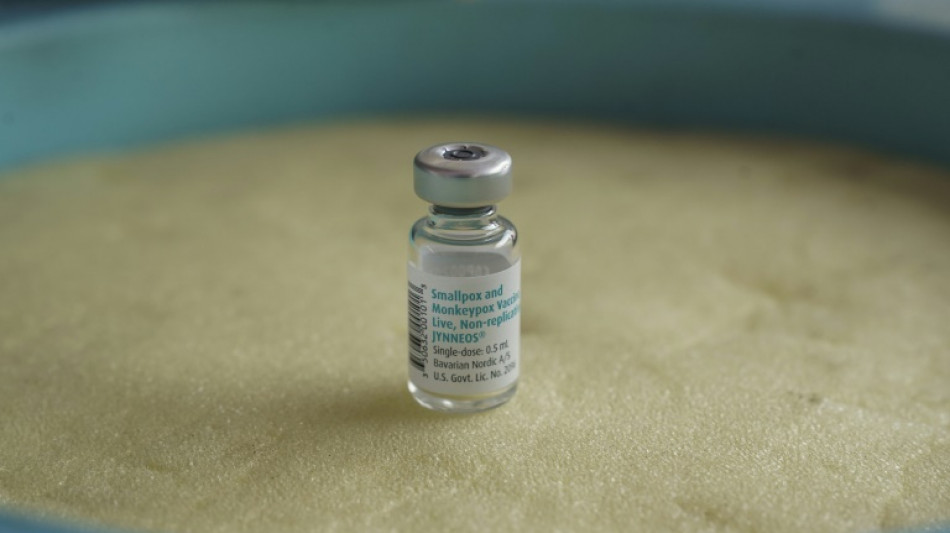
-
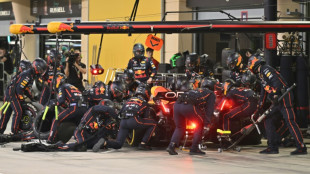 Troubled Red Bull search for path back to fast lane
Troubled Red Bull search for path back to fast lane
-
China's forecast-beating growth belies storm clouds ahead: analysts
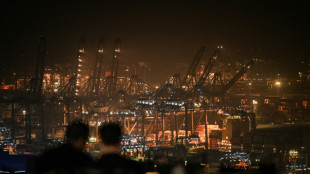
-
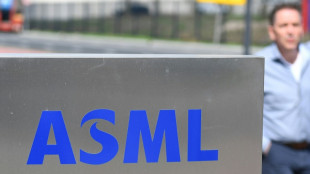 ASML CEO sees growing economic 'uncertainty' from tariffs
ASML CEO sees growing economic 'uncertainty' from tariffs
-
Heineken beer sales dip, tariffs add to uncertainty

-
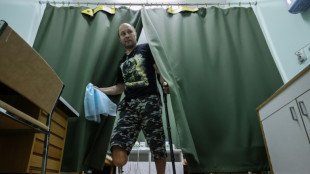 Rehab centre for Russian veterans from Ukraine fills up
Rehab centre for Russian veterans from Ukraine fills up
-
Dutch flower industry grasps thorny pesticide issue
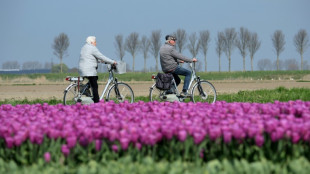
-
 Solar boom counters power shortages in Niger
Solar boom counters power shortages in Niger
-
Malnourished children in Afghanistan at 'high risk of dying' without US aid
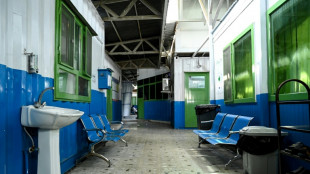
-
 Skating comeback queen Liu says she can get even better for Olympics
Skating comeback queen Liu says she can get even better for Olympics
-
'Let's rock': world music icon Youssou N'Dour back on the road

-
 Mackerel and missiles: EU-UK defence deal snags on fish
Mackerel and missiles: EU-UK defence deal snags on fish
-
Istanbul's Hagia Sophia prepares for next big quake
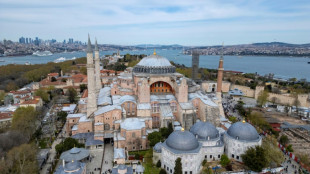
-
 'Magician' Chahal casts spell with IPL heroics
'Magician' Chahal casts spell with IPL heroics
-
WHO countries strike landmark agreement on tackling future pandemics
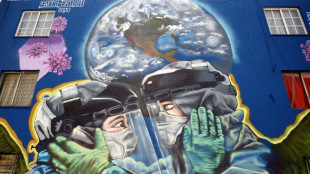
-
 Kerr salutes Harvard defiance over Trump after Warriors win
Kerr salutes Harvard defiance over Trump after Warriors win
-
Canada party leaders hold high-stakes debate two weeks from vote
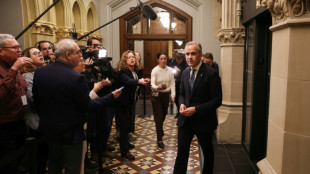
-
 As war grinds on, Ukraine's seniors suffer
As war grinds on, Ukraine's seniors suffer
-
ASML CEO sees 'increased macro uncertainty' from tariffs
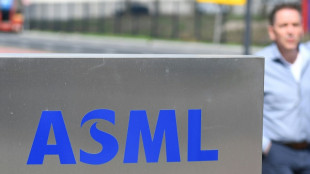
-
 Pope leaves faithful guessing over Easter appearances
Pope leaves faithful guessing over Easter appearances
-
Butler, 'Batman' Curry shine as Warriors down Grizzlies to reach playoffs

-
 Skating 'Quad God' Malinin ready for Olympic favourite tag
Skating 'Quad God' Malinin ready for Olympic favourite tag
-
Toppmoeller has ascendant Frankfurt challenging their limits

-
 Cambodia's Chinese casino city bets big on Beijing
Cambodia's Chinese casino city bets big on Beijing
-
Vespa love affair: Indonesians turn vintage scooters electric

-
 Europe seeks to break its US tech addiction
Europe seeks to break its US tech addiction
-
Long-abandoned Welsh mine revived as gold prices soar

-
 UK's top court to rule on how to define a 'woman'
UK's top court to rule on how to define a 'woman'
-
WHO countries reach landmark agreement on tackling future pandemics
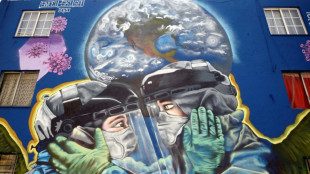
-
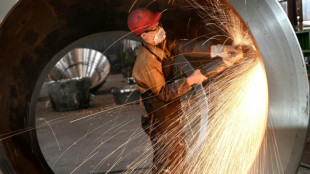 Stocks struggle again as Nvidia chip curb warning pops calm
Stocks struggle again as Nvidia chip curb warning pops calm
-
China's economy beats forecasts ahead of Trump's 'Liberation Day'
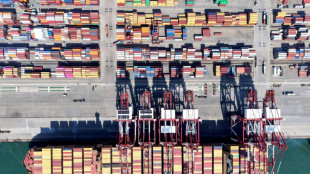
-
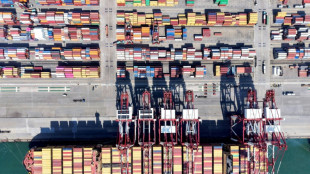 China's economy beat forecasts in first quarter ahead of Trump's 'Liberation Day'
China's economy beat forecasts in first quarter ahead of Trump's 'Liberation Day'
-
Trump orders critical minerals probe that may bring new tariffs
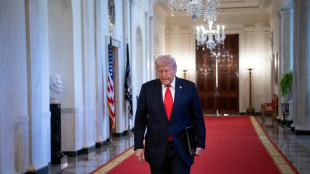
-
 Onana faces date with destiny as Man Utd chase Lyon win
Onana faces date with destiny as Man Utd chase Lyon win
-
Lessons in horror with Cambodia's Khmer Rouge tribunal
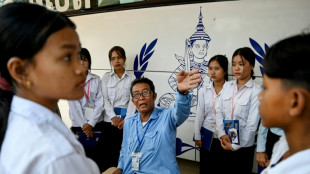
-
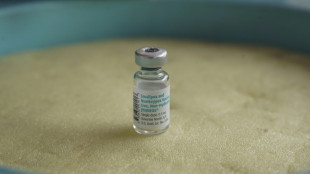 Pandemic agreement: key points
Pandemic agreement: key points
-
Paramilitaries declare rival government as Sudan war hits two-year mark
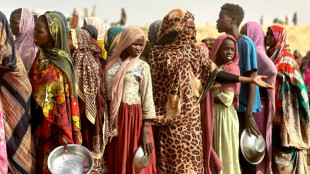
-
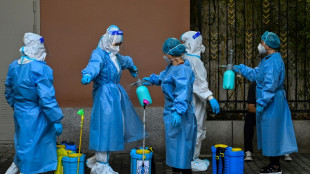 Landmark agreement reached at WHO over tackling future pandemics
Landmark agreement reached at WHO over tackling future pandemics
-
'La bolita,' Cuban lottery offering hope in tough times
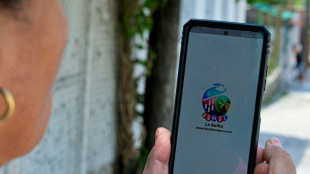
-
 'Toxic beauty': Rise of 'looksmaxxing' influencers
'Toxic beauty': Rise of 'looksmaxxing' influencers
-
Facebook added 'value' to Instagram, Zuckerberg tells antitrust trial

-
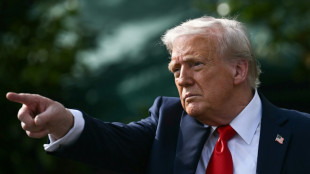 Trump signs order aimed at lowering drug prices
Trump signs order aimed at lowering drug prices
-
Paramilitaries declare rival government as Sudan war enters third year
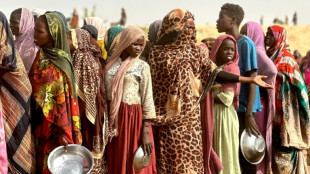
-
 Nvidia expects $5.5 bn hit as US targets chips sent to China
Nvidia expects $5.5 bn hit as US targets chips sent to China
-
Emery targets 'next step' for Aston Villa after Champions League heroics

-
 'Gap too big' for Dortmund after first leg, says Guirassy
'Gap too big' for Dortmund after first leg, says Guirassy
-
Maradona's daughter says doctors could have prevented his death

-
 Barcelona 'justified' semi-final spot despite Dortmund loss, says Flick
Barcelona 'justified' semi-final spot despite Dortmund loss, says Flick
-
'We thought the tie was over': Dembele admits PSG switched off against Villa

-
 Wine consumption falls heavily into the red
Wine consumption falls heavily into the red
-
Barca through to Champions League semis despite Guirassy hat-trick


Pandemic agreement: key points
After more than three years of thorny negotiations, World Health Organization member states finalised early Wednesday a major agreement on pandemic prevention, preparedness and response.
Here are the main points in the accord, which will be submitted for final approval at the WHO's annual assembly next month.
- Objective -
The objective of the WHO Pandemic Agreement is "strengthening pandemic prevention, preparedness and response".
Following the glaring inequity and deficiencies exposed in the world's handling of the Covid-19 pandemic, the agreement is guided by the principles of equity, solidarity and transparency.
Respect for the sovereign rights of states -- an issue widely questioned by conspiracy theories that have surrounded the negotiations -- is also a key foundation, according to the text.
- Pathogen access, benefit sharing -
The heart of the agreement is the proposed Pathogen Access and Benefit-Sharing System (PABS) -- a new platform allowing the swift sharing of pathogen data with pharmaceutical companies, enabling them to start work quickly on pandemic-fighting products.
This was one of the trickiest parts to negotiate.
Developing countries had expressed concerns about handing over pathogens and data if they risked being cut off from accessing the resultant vaccines, tests and treatments, as happened at the start of the Covid-19 pandemic.
Under PABS, countries will commit to sharing data rapidly on emerging problematic pathogens, while vaccines and other health products derived from accessing that information would be shared on a more equitable footing.
The text calls for participating manufacturers to make available to the WHO at speed "20 percent of their real-time production" of pandemic-related health products, including "a minimum threshold of 10 percent" in the form of donations, and the rest "reserved at affordable prices" for the UN health agency.
Manufacturers, even those based in non-WHO countries, can choose freely to participate in the voluntary programme, for which the practical modalities still remain to be negotiated.
- Technology transfer -
Another main sticking point has been the modalities around the transfer of technology and know-how needed to produce pandemic-related health products, in particular to developing countries.
Some wealthier countries, notably ones where such products are currently produced, rejected the idea that such transfers should be mandatory.
The agreed-upon text instead calls for transfers to be undertaken on "mutually agreed" terms.
And it calls for the use of measures and incentives including licensing agreements and favourable conditions linked to things like financing and regulations to promote technology transfer.
- Prevention and surveillance -
Under this section, countries will take progressive steps to strengthen their pandemic prevention and surveillance capacities.
Subject to resources, countries are called on to develop, reinforce and implement comprehensive national pandemic prevention plans.
This would include things like routine immunisation, managing biological risks in laboratories, preventing antimicrobial resistance, and stopping the transmission of diseases from animals to humans.
- Sustainable local production -
The text calls for countries to take measures to ensure "more equitable geographical distribution and rapid scale-up of the global production of pandemic-related health products" like vaccines.
It also calls for more "sustainable, timely and equitable access to such products", and for countries to "reduce the potential gap between supply and demand during pandemic emergencies".
- Supply chain and logistics -
In an attempt to smooth out the flaws exposed by Covid-19, a Global Supply Chain and Logistics Network will be set up for equitable, timely and affordable access to pandemic-related health products.
During pandemic emergencies, countries should prioritise sharing pandemic-related health products through the network to ensure equitable distribution based on public health risk and need.
The structure and operational modalities of the network, which is to be coordinated by the WHO, will be defined at its first meeting, according to the text.
N.Schaad--VB
